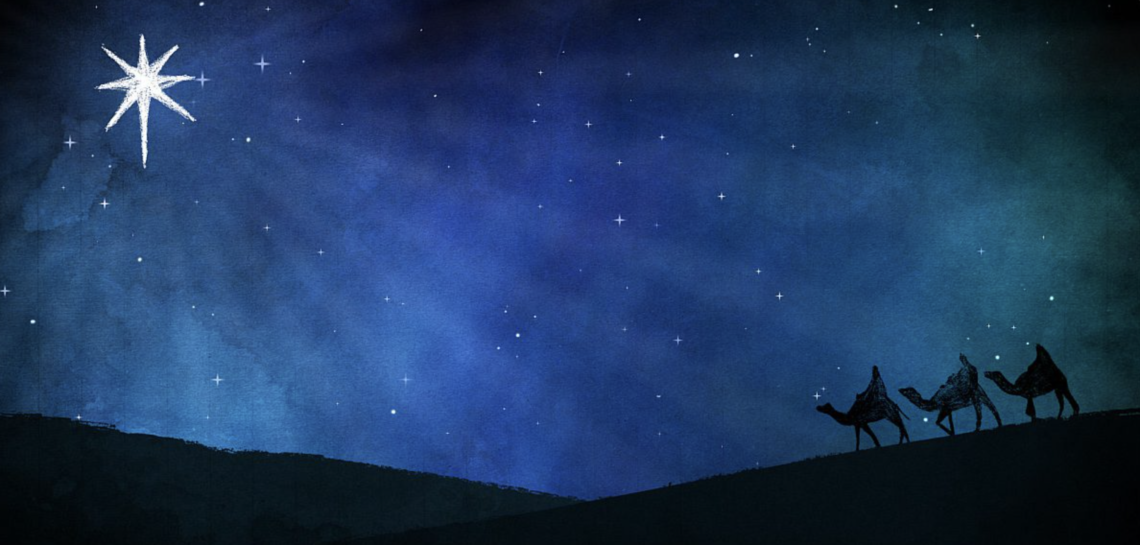
After 12 Days of Christmas: Epiphany!
- Good News of Great Joy - December 23, 2024
- On the Road - April 15, 2024
- After 12 Days of Christmas: Epiphany! - January 7, 2024
As a grown-up, I don’t think I’ve ever taken the Christmas decorations down before today, and that was true before I knew Epiphany was even a thing. At first, I’d say it was just me dragging my feet about allowing the “most wonderful time of the year” to end. As far as it depended on me–I declared by lingering decorations–we would have our full 12 Days of Christmas even if the rest of the world around us was ready to move on into New Year’s Resolutions involving less clutter and fewer cookies.
The New Year celebrations in Thailand overshadowed Christmas, almost swallowing it up: the numbers 2024 were displayed in red and green almost as if it were synonymous with “Merry Christmas.” There are plenty of Christmas decorations around Chiang Mai, in keeping with the city’s intercultural flair. The last time I was anywhere a Christmas tree had been erected, it was still up…and I like that. 2024 is the year of the dragon, a tradition Thailand shares with other Eastern cultures: the red and gold New Year décor blends right in with the glitzy glittery sort of Christmas décor that seems to be favored here. [Sidenote: I’ve probably seen more of the puffy sort of tinsel garland this year than in the past 20 years of Christmases in America combined. It reminds me of my Grandma’s Christmas tree in the late 80s/early 90s…you know, around the same time in history that we rolled our jeans at the ankles so they poofed out like MC Hammer pants.]
Yes, our Christmas tree is still up. Christmas was truly lovely in all the most important ways for us this year. We had a joyful celebrations with the ZOE family, and hosted a Christmas party for the ZOE Child Rescue Team.

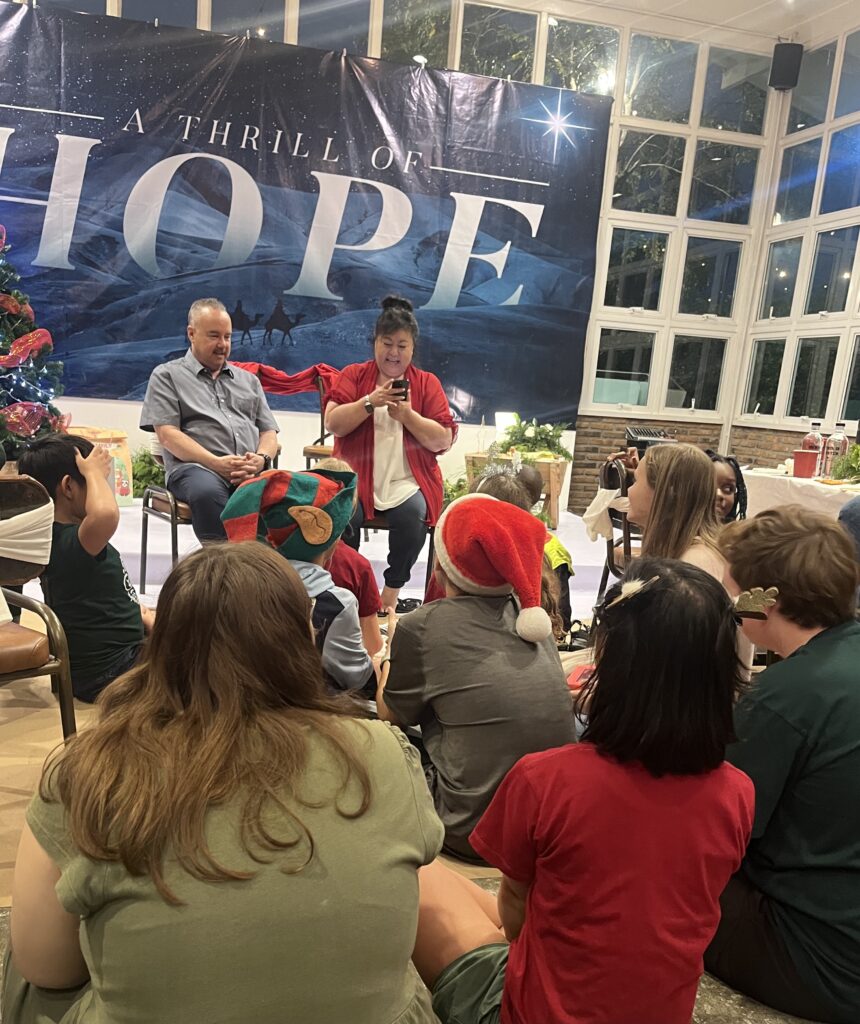

At our international church service, we heard scripture read in a multitude of languages I didn’t know existed and worshipped with believers from all over the world. We took our annual Christmas church service photo in front of palm trees instead of a Christmas tree, void of fancy dresses or sweater vests.
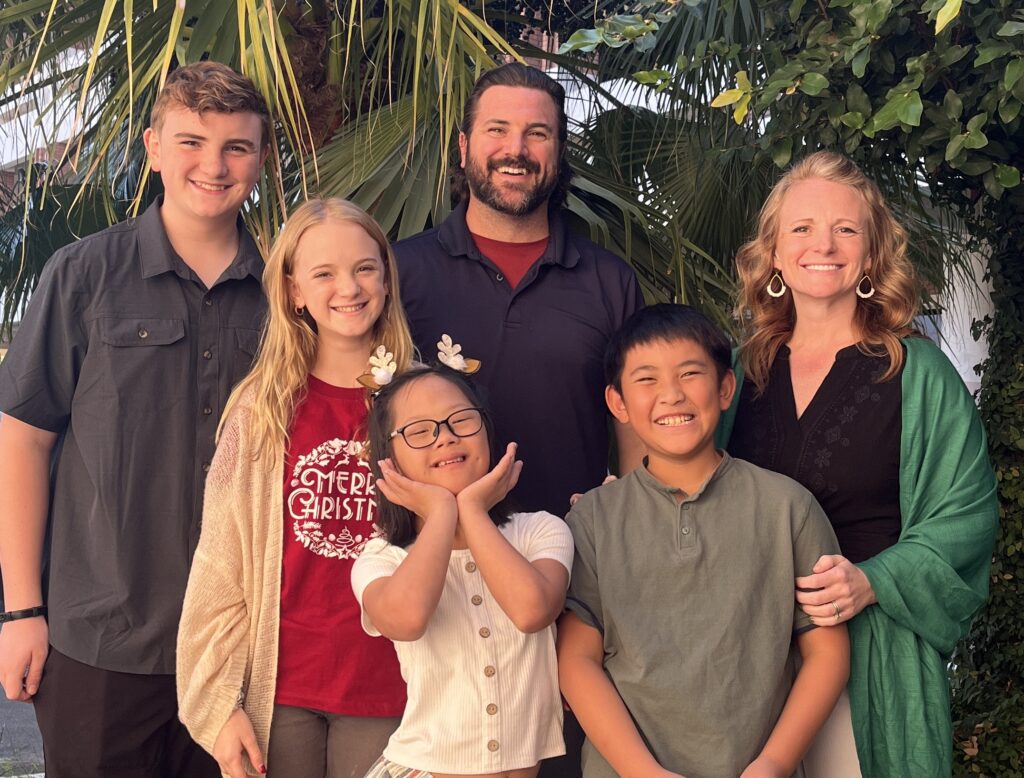
However, I admit the coziness of the days between Christmas Day and News Year’s Day left me wanting. I still snuggled under my “Joy to the World” blanket, drank my coffee hot (even though iced is more appropriate to the climate), and tried to bask in the glow of the Christmas tree in our living room for some heavy hours of reading and reflecting. But I missed my fireplace, the snow outside, the sound of the wind howling, and reddiwhip to put on my coffee.
I was today years old when I really realized just how culturally bound my “feeling of Christmas” has always been. Snow wasn’t a part of the first Christmas. There was no bedazzled Christmas tree beside the manger. Stockings weren’t hung by the chimney with care on the night Jesus was born in the stable. Of course I knew that … and yet those things have always been a part of how Christmas “feels” to me. Realizing that, Epiphany carries new weight for me this year and is more beautiful than ever before.
Traditionally, Epiphany is the day the church has set aside to remember the wise men coming to Bethlehem to find “he who has been born king of the Jews” (Matthew 2:2). The wise men came from the East. I am a Westerner, I think according to Western ideas and have been shaped by my Western culture. I now live in the East and am daily becoming accustomed to Eastern ideas and the deep-seated customs of Eastern culture. The men who came to find Jesus came from this side of the world. Buddha walked the earth hundreds of years before Jesus and so I wonder: were the wise men schooled in Buddhist thought like the kids here in Thailand are today?
The wise men were astrologers or magicians: wealthy men who accurately discerned a message written in the stars. They came to worship, but they were not Jews waiting for their Messiah: they were Gentiles from a foreign culture, with totally different ideas, practices, traditions, and culture. A lifetime of astrological study, a very long cross-country journey, and their diligent search for one bright star culminated as they “rejoiced exceedingly with great joy” over finding young Jesus (Matthew 2:10). They bowed in worship to a tiny king and lavished gifts upon him (Matthew 2:11). This wasn’t at the manger, but I am glad the wise men are a part of our nativity scene anyway…we need them in this story.
After the gifts were given and received, the wise men’s part in the greatest story ever told just ended: in a quiet, anti-climactic finale we are told they chose to “return home by another way” (Matthew 2:12). The wise men’s experience of Christmas brought exceedingly great joy and—also—complex feelings of a darker nature (fear? Anxiety?) that caused them to act in caution and secrecy. When they chose to “return home by another way” they were choosing to disobey the local government official’s direct orders (see Matthew 2:8). This, in part, led to the “Massacre of the Innocents:” the tragic deaths of so many innocent children at the hands of a power-hungry government. And so Matthew’s account of the Christmas story ends with weeping and lamentation that could be heard miles away (Matthew 2:18).
I scanned the Christmas accounts for emotive sort of words that give us clues to how that first Christmas may have “felt.” Here are a few of them, in no particular order: shame, resolve, contemplation, fear, rejoicing, great joy, warning, lamentation, weeping, refusal to be comforted, greatly troubled, fear, power, holy, wonderful, blessed, rejoicing, exaltation, mercy, great fear, great joy, haste, wondering, pondering, glorifying, praising, peace, marveled, give thanks, “and a sword will pierce through your own soul.”
Christmas is beautiful, as we celebrate our God who took on flesh in the most extraordinary way through the most ordinary of miracles. Christmas is complicated, for all the same reasons and more.
The celebration ends, after 12 days of Christmas, with Epiphany. Epiphany recognizes that Jesus is a gift not only to a specific people, but a gift unto all the world. The celebration of the coming of our LORD is one that transcends culture, and it has done so from the very beginning. Upon entering the world, Jesus radiated love so bright and so bold that the whole world could see. Those wise men from the East traveled far in search of the glory of God with lavish gifts and hearts of worship. Jesus came for the children of Israel AND for those in the East. He came for you. He came for me.


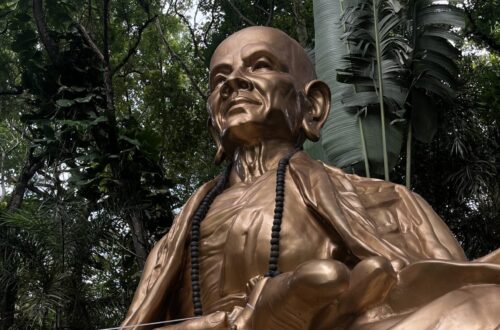
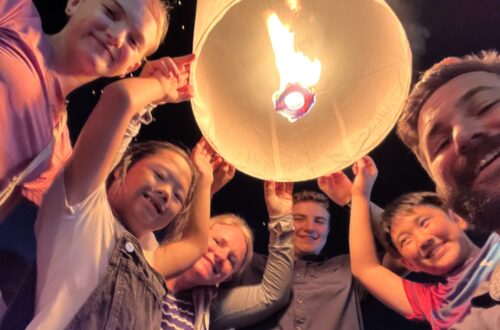

One Comment
Grandma
Once again, beautiful words! And our tree is still up, too.